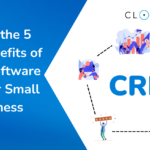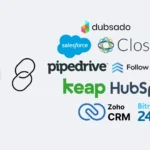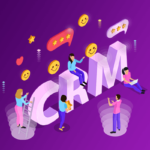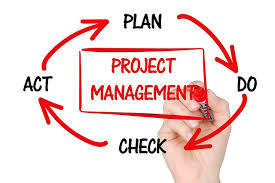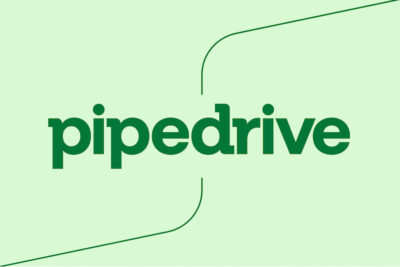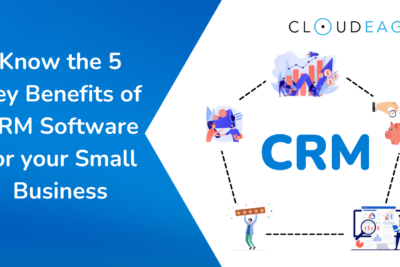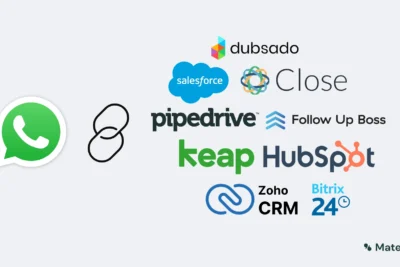Nowadays, companies are constantly looking for ways to improve their relationship with their customers and increase their contact base. CRM ( Customer Relationship Management ) software can be a key tool to achieve these objectives.
But what exactly is a CRM and how can it benefit your company?
In short, a CRM is a system designed to manage and organize information related to a company’s customers . This may include contact details, purchase history, interactions with the company, among others. The main goal of a CRM is to improve the relationship with customers , which can lead to an increase in sales and higher customer retention.
In this article, we will explore in detail what a CRM is, how it is used in different companies, the advantages and disadvantages of implementing a CRM, the best CRM software available in the market, some examples and more.
By the end of this article, you will have a complete understanding of what a CRM is and how it can help your company improve your relationship with your customers.
It’s time to increase your sales!
SUMMARY:
A CRM is an essential tool for a company’s customer relationship management , as it allows for the collection, administration and effective use of customer information. It is a fundamental resource for any sales team, as it allows them to work more efficiently and effectively , and allows them to make informed decisions based on the information collected.
After trying dozens of CRMs for business management, I recommend trying ActiveCampaign, which has a 14-day free trial and all the necessary functions to grow your sales. More than 180,000 companies use ActiveCampaign .
What is a CRM?
A CRM (Customer Relationship Management) is a software tool used to manage customer information and the business relationships that companies have with them . A CRM system allows companies to collect, store and manage relevant information about their customers, such as their contact details, purchase history, preferences and needs.
The main goal of a CRM is to help companies improve their relationship with their customers, which can lead to greater customer retention, sales, and profitability . In addition, a CRM also helps a company’s sales team to better manage and organize its sales activities and processes .
CRMs allow companies to have a complete and detailed view of their customers, allowing them to offer a more personalized service adapted to the needs of each customer . In addition, it also allows them to identify new sales opportunities and improve the management of their sales cycle
What is a CRM for?
A CRM (Customer Relationship Management) is a software tool designed to help companies manage and maintain relationships with their customers. A CRM can have multiple functions, but in general, it serves to centralize all customer-related information in one place.
Some of the main functions of a CRM are:
- Help the company know its customers better , collecting and storing relevant information about them, such as their contact details, purchase history, preferences and needs.
- Help the company track the interactions it has had with each customer, including calls, emails, website visits , among others.
- Help the marketing team identify sales opportunities , segmenting customers into different categories and adapting marketing strategies to their specific needs.
- Allow the company’s sales representatives to access customer information , allowing them to offer a personalized service adapted to the needs of each customer.
- Facilitate the management of the company’s sales cycle , from prospecting to converting customers into sales.
- There are different types of CRM, such as sales CRM, marketing CRM , customer service CRM, among others, which can be used according to the specific needs of the company.
What are the advantages and disadvantages of a CRM?
Before implementing a CRM in your company, it is vital to know its advantages and disadvantages as it will allow you to know the limitations and conditions in your planning.
Advantages of a CRM.
The main advantages of a CRM (Customer Relationship Management) are the following:
- Improves customer management: It allows companies to have a complete view of their customers, allowing them to offer a more personalized service adapted to their needs. The CRM database can include information such as purchase history, preferences and needs, allowing the company to know its customers better and offer a more personalized service.
- Optimizes sales and marketing processes: Helps sales and marketing teams work more efficiently and effectively. By having access to relevant customer information, sales representatives can offer products and services tailored to each customer’s needs. Marketing teams can segment customers and tailor marketing strategies to their specific needs.
- Facilitates collaboration and communication between teams: Centralizes customer information in one place, which facilitates collaboration between different teams in the company. For example, the marketing team can provide relevant information to sales representatives, allowing them to adapt their sales strategies.
- Provides useful information for decision making: Provides valuable information for the company’s strategic decision making. For example, you can identify sales opportunities, the most popular products or services, the most valuable customers, among others.
- Allows greater efficiency in the management of loyalty programs: Helps companies manage their loyalty programs more efficiently. By having detailed information about customers and their preferences, the company can offer personalized incentives adapted to the needs of each customer.
Disadvantages of a CRM.
Although a CRM can have many benefits, there are also some disadvantages that companies should consider. The main disadvantages are the following:
- Expensive Implementation: Running a CRM system can be expensive, especially for smaller businesses that have a limited budget . The company must consider platform acquisition costs and additional customization and integration costs.
- Learning and training: A CRM system can have many functions, and the company must ensure that its team is trained to use it correctly . The company must allocate time and resources to train and learn its staff in managing the platform.
- Compatibility issues: If the CRM platform is not compatible with other systems or programs the company uses, there may be integration issues that affect the effectiveness of the system. The company must ensure that the CRM platform integrates correctly with other systems and programs it uses.
- Lack of human interactions: A CRM can automate many processes and reduce the need for human interactions, which can negatively affect the company’s relationship with its customers. It is important for the company to balance automation with human interaction to ensure a more personal relationship with customers.
- Lack of flexibility: CRM platforms are designed to meet a specific set of needs, and there may be limitations to customization and flexibility . The company must carefully evaluate the functions and features needed by the CRM system to ensure that it meets its needs.
What are the best CRMs?
1. ActiveCampaign CRM.
ActiveCampaign is one of the best CRM focused on companies that need to manage their customer relationships and optimize their sales and marketing processes. ActiveCampaign’s CRM focuses on the coordination and monitoring of customers (current and potential) to accompany them throughout the sales funnel.
More than 180,000 users in 170 countries trust ActiveCampaign for their business tracking.
With ActiveCampaign you can manage your contacts, automate commercial tasks, customize the sales funnel, segment customers and obtain reports to increase your sales.
The prices of this platform start from $19 depending on the plan you choose.
If you are looking for the best CRMs, you should definitely try ActiveCampaign. Its 14-day free period is enough to test its functions and convince yourself that it is the right tool to grow you
2. noCRM.
noCRM is a customer relationship management (CRM) platform that differs from other CRMs by being designed with salespeople in mind , providing them with a simple and efficient tool to manage their leads and sales opportunities.
One of the main differences of noCRM is its focus on simplicity and ease of use . Traditional CRM systems are often complex and require a lot of time to complete tasks and record information. This can be frustrating for sales reps, who prefer to spend their time selling rather than filling out forms and performing administrative tasks.
More than 11,000 salespeople, managers and CEOs in more than 80 countries use noCRM to track sales and increase sales.
With noCRM you can create leads from multiple sources (forms, LinkedIn, emails, cards, etc.), plan actions by opportunity, personalize your sales funnel , integrate your corporate email , set goals, measure results and much more.
This software for sellers has 3 pricing plans that you can try for free and they start at $12 per month per user.
Implementing a new CRM in your company can be a nightmare due to the number of functions and training. However, with noCRM your entire sales team will be able to start using it in a matter of minutes thanks to its simplicity and power at the same time.
The goal is for your salespeople to not be sitting around updating data, but rather selling and prospecting!
3. Brevo (formerly SendInBlue).
Brevo is a marketing and sales automation platform that also has a CRM. The platform offers an all-in-one solution for digital marketing management, including email marketing , SMS, chat, advertising and more.
Brevo has more than 180,000 customers worldwide.
Brevo’s main CRM features include contact management, customer activity tracking, email marketing campaign creation , automated workflow creation, and sales management.
Prices range from $0 to $66/month depending on the plan chosen.


